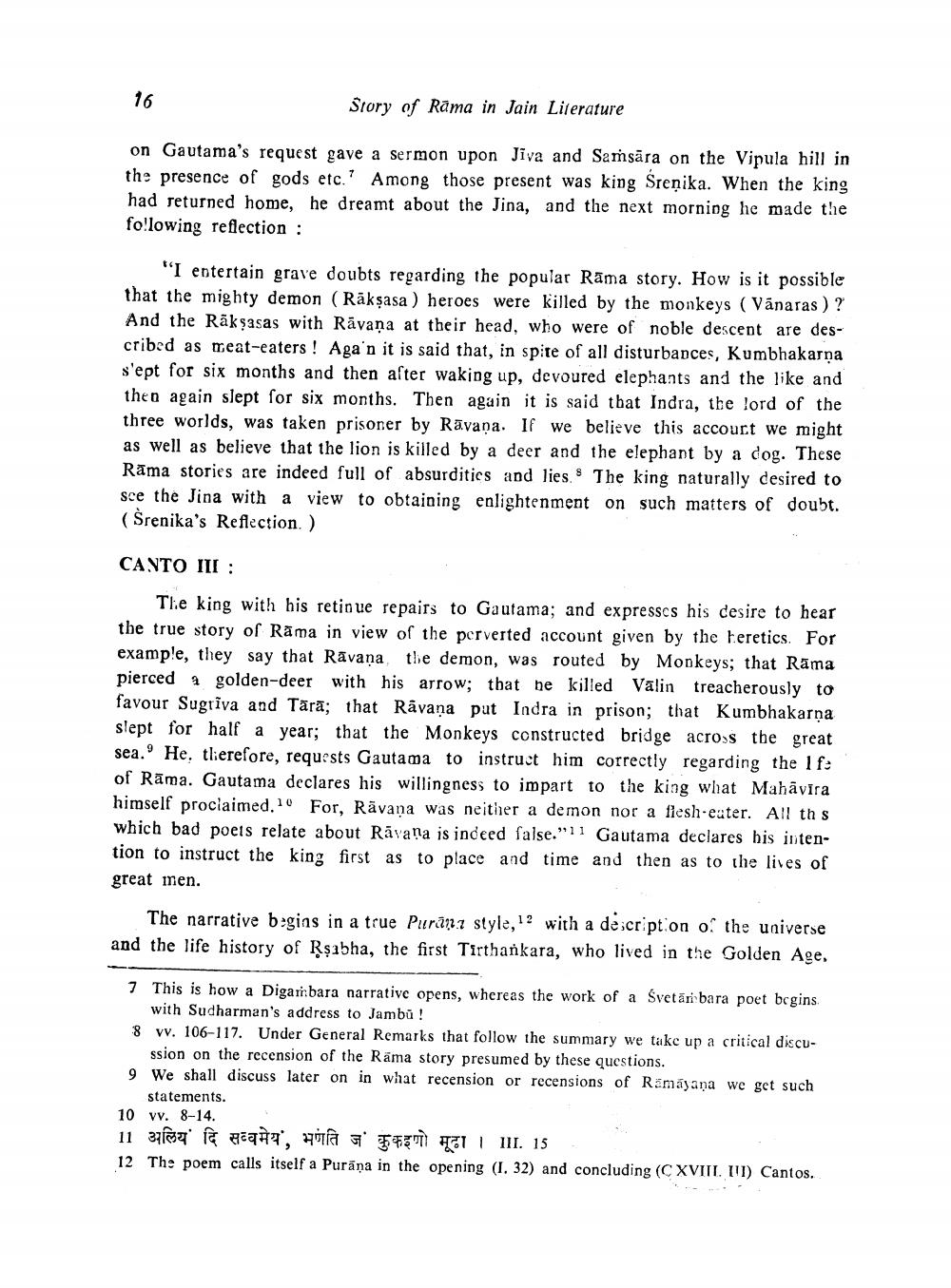________________
16
Story of Rāma in Jain Literature
on Gautama's request gave a sermon upon Jiva and Samsāra on the Vipula hill in the presence of gods etc.? Among those present was king Sreņika. When the king had returned home, he dreamt about the Jina, and the next morning he made the following reflection :
"I entertain grave doubts regarding the popular Rāma story. How is it possible that the mighty demon (Rākşasa ) heroes were killed by the monkeys (Vānaras ) ? And the Rākşasas with Rāvana at their head, who were of noble descent are described as meat-eaters ! Aga'n it is said that, in spite of all disturbances, Kumbhakarna s'ept for six months and then after waking up, devoured elephants and the like and then again slept for six months. Then again it is said that Indra, the lord of the three worlds, was taken prisoner by Rāvana. If we believe this accourt we might as well as believe that the lion is killed by a deer and the elephant by a dog. These Rāma stories are indeed full of absurdities and lies. The king naturally desired to sce the Jina with a view to obtaining enlightenment on such matters of doubt. (Srenika's Reflection )
CANTO III :
The king with his retinue repairs to Gautama; and expresses his desire to hear the true story of Rāma in view of the perverted account given by the teretics. For example, they say that Rāvana the demon, was routed by Monkeys; that Rāma pierced a golden-deer with his arrow; that he killed Valin treacherously to favour Sugrīva and Tārā; that Rävaņa put Indra in prison; that Kumbhakarna slept for half a year; that the Monkeys constructed bridge across the great sea.' He, therefore, requests Gautama to instruct him correctly regarding the 1f: of Rāma. Gautama declares his willingness to impart to the king what Mahāvira himself proclaimed. 10 For, Rävana was neither a demon nor a flesh-eater. All th s which bad poets relate about Rāvana is indeed false,"11 Gautama declares his intention to instruct the king first as to place and time and then as to the lives of great men.
The narrative begias in a true Purina style, 12 with a description or the universe and the life history of Rşabha, the first Tirthankara, who lived in the Golden Age,
harman's der General Rama story Prion or
7 This is how a Digarabara narrative opens, whereas the work of a Svetāri bara poet begins
with Sudharman's address to Jambu ! 8 vv. 106-117. Under General Remarks that follow the summary we take up a critical discu
ssion on the recension of the Rāma story presumed by these questions. 9 We shall discuss later on in what recension or recensions of Ramayana we get such
statements. 10 vv. 8-14. 11 sa le faqa', iz FT II III. 15 12 The poem calls itself a Purāņa in the opening (I. 32) and concluding (CXVIIL UI) Cantos.




